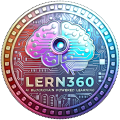昇進
ICOを公開する
コイン
Calendar
暗号化イベント
ニュース
DeFi
NFT
WEB3
Games
トレンド
-
JA
English Русский Deutsch Español French Italian Portugues Indonesian Turkish Dutch العَرَبِيَّة বাংলা 中文(简体) 한국 हिन्दी 日本語
- サインイン










